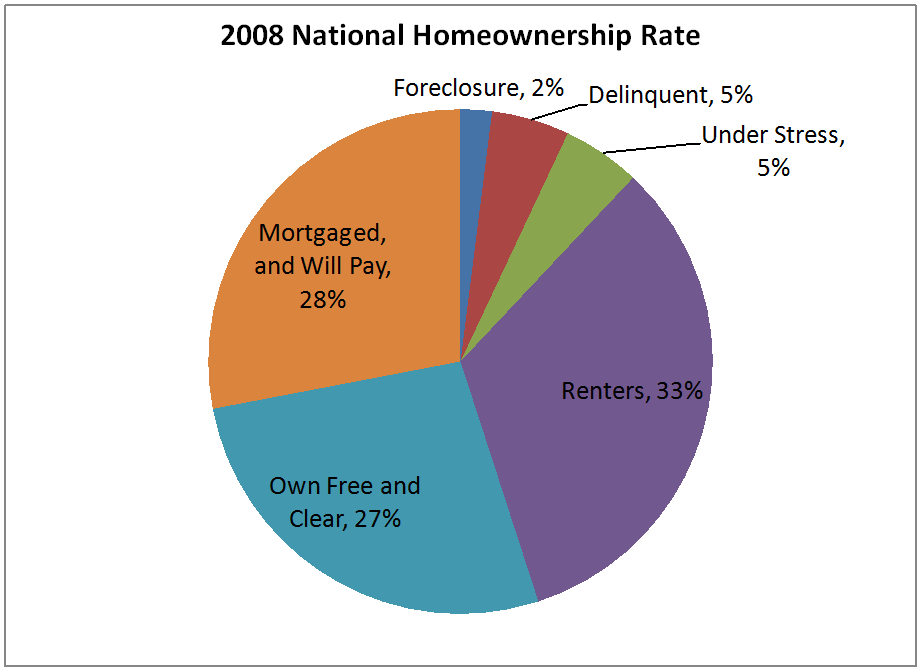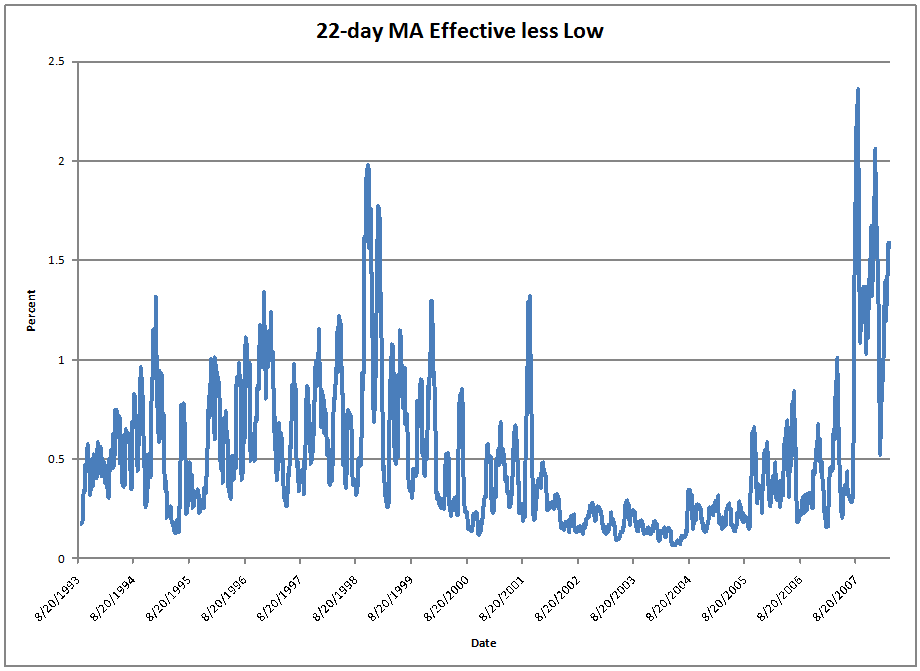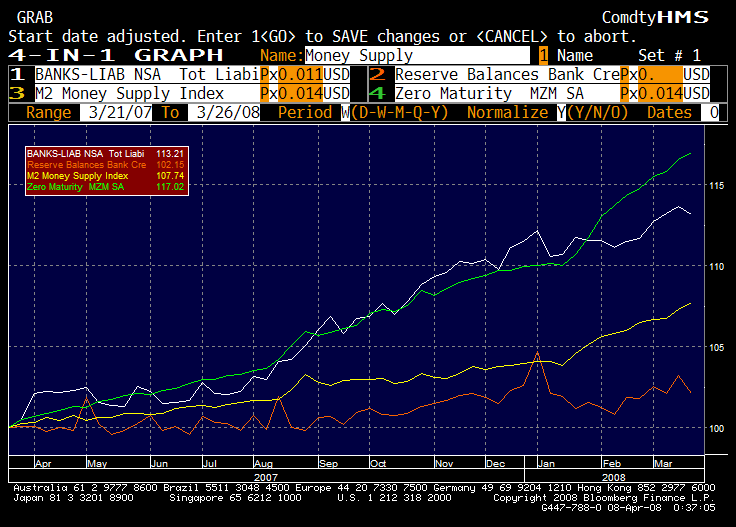One Dozen Observations on Residential Housing
1) The rating agencies have been running like crazy. They do that when they are behind the curve. Whether it is Moody’s on subprime, or S&P on Alt-A lending, the downgrades are coming in packs. Then there are difficulties with the debts of real estate partnerships, like LandSource Communities Development, which is likely to file for insolvency, together with some residential developers.
2) Now, there have been a few summary pieces on how the rating agencies changed as the housing boom moved on. Here is one from the New York Times, and one from the Wall Street Journal. As I had commented long before in my writings at RealMoney, the rating agencies were co-dependent with those that paid them. That said, it would be hard to construct a system that would not be that way. Buyers don’t have a concentrated interest in ratings. Issuers so.
3) If I were Ambac, I would be doing all that I could to allege fraud on contracts where representations and warranties were not upheld. Ambac is fighting to survive.
4) Mortgage insurers — it is the best of times, if you survive, because you are the almost the only game in town for those wanting to do low down payments, and rates for mortgage insurance are way up. But, it is the worst of times, housing prices are falling, rating agencies are downgrading, and defaults on insured mortgages are rising.
5) Foreclosures:
- An excellent summary and map of foreclosure activity.
- Maryland makes them take a little longer. (The article overstates the lengthening.)
- California is suffering.
- Desperate in Denver.
- Foreclosures and crime are correlated.
- Which leads the FHA to act, and the states to act as well, because Federal efforts are slow.
6) Gotta love OFHEO, which is trying to rein in the GSEs during a lending crisis. Even though they may have traction, I don’t see how they tighten the regulations during a crisis.
7) For that matter, consider the lenders. Countrywide seemed to purposely ignore the creditworthiness of borrowers as they jammed it out the door lent on mortgages. Even with all this, mortgage lenders are complaining that new regulations will make mortgages less affordable. What they mean is that they will issue fewer mortgages, and they will make less profit. Please, let’s stop making it easy for those that can’t afford a home to take the risk of buying one. Higher mortgage rates are bad in the short run, but good in the long run.
8 ) Dr. Jeff reluctantly asks what inning we are in on housing. I understand that it is an overused metric, but it is overused for a reason. Nine is an intuitive number — are we halfway through? Fifth inning. One-quarter? Third. Almost done? Eight or ninth. He also makes a simple request to those of us who opine on the housing slump, to be more definite in what we say, provide more data, and what will be signs that the troubles are turning.
I need to set up some housing recovery googlebots to scan for me, but my guess is that we are in the fifth inning of the troubles. When I get more definitive guesses/answers to the questions, I will post.
9) Delinquencies:
- Lenders, or better, servicers, are struggling with the load.
- That said, the growth in subprime delinquencies is slowing. Perhaps we are going through burnout, where most of those likely to default have done so, and a few incremental defaults remain.
- But home equity loan experience keeps getting worse. (My only surprise there is how slow this has been in arriving.)
10) Home prices continue to fall, and estimates to the nadir (cycle low) range between 0-50%, with 10-20% being the most common.
11) Falling home prices will lead to many more foreclosures in prime loans, and of course Alt-A and subprime. Foreclosures happen when a sale would result in a loss, and a negative life event hits ? death, divorce, disaster, disability, and unemployment.
12) Second-order effects:
- Home remodeling expenditures fall
- (Commercial) Architecture Billings index falls. (Does not bode well for commercial real estate.)
- Low new housing sales.
- Tough total sales environment in the SF Bay Area. Sales fall before housing prices, and rise as housing bottoms. (Opinions on that last thought?)
- Allegations of fraud are thick among borrowers and lenders. A lotta smoke, but is there any fire?… Clearly, the servicing system was not designed for this level of failure, so I’m not surprised that things are moving slowly.
- Homeowner vacancy rates are at an all-time high. That should keep the pressure on prices, because there is a lot of competition if you want to sell, and there is a lot of dark supply waiting to emerge if prices get more favorable. Emergence from this set of troubles may be slow, much like a credit crisis in the corporate bond market often feels slow to unwind.




